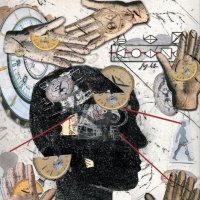Definition Of Belief
Understanding The Structure & Types Of Beliefs
A definition of belief is that it is something that we accept and believe to be true, but that is not necessarily something that can be proven to be true.
The whole realm of spirituality is fraught with conflict over endless circular arguments about beliefs and truth.
As Pontius Pilate was alleged to have said: "What is truth?".
Correct beliefs and polarised positions
In the field of religious beliefs there has been much argument, conflict and suffering over "correct" beliefs, or orthodoxy throughout history.
Correct
beliefs and core doctrines are reinforced with public declarations of
belief in credes and propositional statements of faith such as the
Nicean crede.
This is not limited to religion but applies to
political beliefs and societal beliefs such as those about gender and
sexuality, "woke" beliefs about social equality, beliefs to do with
political correctness and so on.
Then there is the tribalism of
political beliefs such as Democrats vs. Republicans in the US and
Conservatives v. Labour in the UK, and the tribalism of pressure groups
such as the American NRA with their staunch defence of Americans'
inalienable rights to bear arms.
Conflict Over Definition Of Belief And The Suffering Inflicted On Those Who Do Not Agree
Countless millions have been killed over the past century, and genocides have been committed,
in the name of various political beliefs: the Stalinist and Maoist purges, the killing fields of Cambodia, Armenia, Yugoslavia, Rwanda, and in the
southern States of the USA the appalling legacy of the lynchings by the Klu Klux Klan .
In previous centuries there has been the religious persecution by state supported majorities over non believing minorities such the persecution of the Cathars by the Catholic church and the burning of Catholics by Protestants and vice versa.
The list is endless, and in all cases:
Believing
themselves to be right, clinging to their beliefs, to the point of
killing to defend their view of the rightness of their position.
Definition Of Belief - A Model For Understanding The Structure And Types Of Beliefs
Let's start by asking: What is a belief, and what is the structure of a belief?
A useful model suggests that every belief has the same basic three-part structure and that can be stated as this:
Cause –> Effect –> Meaning
So, if THIS causes ...
Then, the effect is...
And THAT means...
So to take a simple example: I am feeling miserable and unhappy [cause] I have a few beers [effect] and it makes me happy [meaning].
The Power of Beliefs
Here's where it gets interesting...
Any definition of belief has to take account of the enormous power that beliefs carry. At the personal level this matters because of:
# The energy they invoke
We are energetic beings living in an energetic universe and our words, the words that define and express our beliefs, have power.
# The results they create in our life experience
In The Power of Framing we talked about the causal link between inner states and external events:
”We
are energetic beings. The inner associations that we make and the
meanings that we ascribe to those associations are all energy based.
By changing the words we use to reframe an experience we change the underlying energetic state.
This change in energetic state changes the results that we create.”
Definition Of Belief By Types
[1] Conditioned belief
Conditioned beliefs are the thinking patterns developed at a young age. They become the foundation for your future beliefs and thus form the basis of decision-making and problem-solving. These conditioned beliefs, are largely unconscious.
The only way you identify them is by guaging your resistance to an idea or an action.
[2] Empowering belief
An empowering belief explores and releases potential, and has the positive energy of possibility with sufficient references of success.
[3] Self-limiting belief
A self limiting belief controls and restricts your potential. In addition to childhood conditioning. self limiting beliefs can be the result of various forms of social proof and group belief.
A Balanced Definition Of Belief
To conclude, I want to suggest a framing that helps us avoid the tyranny of certainty and rigidity whilst retaining the resourcefulness of flexibility.
This view is based on a recognition and acceptance of impermanence as a basic condition of the nature of all things, and thus to handle beliefs as a necessary means to fulfill a purpose and/or reach an objective.
This is to adopt a utilitarian approach that sees:
Further Reading: Belief - A Terrible Tyrant Or An Empowering Servant
Return to: What Is Spirituality?
LATEST ARTICLES
Dealing With Distraction - Learning How To Live With Your "Attention Autopilot"
 Living With Your Attention Autopilot The good news about your Attention Autopilot is that it will keep you safe. It is continuously scanning your immediate environment for threats. The bad news is tha…
Living With Your Attention Autopilot The good news about your Attention Autopilot is that it will keep you safe. It is continuously scanning your immediate environment for threats. The bad news is tha…The Time Of Your Life - Recognising Moments Of Alignment For Action
 How will you recognise your moment of alignment for action? In this article I want to look at our relationship with time and in the context of the two main themes of this site, firstly as a thinking s…
How will you recognise your moment of alignment for action? In this article I want to look at our relationship with time and in the context of the two main themes of this site, firstly as a thinking s…The Metagame Approach to Second Order Thinking - 5 Guiding Principles
 How To Position Yourself For Survival & Success In A Complex Environment We treat life as though it is a complicated system, and our thinking skills and mental models are focused on understanding its…
How To Position Yourself For Survival & Success In A Complex Environment We treat life as though it is a complicated system, and our thinking skills and mental models are focused on understanding its…Outcome Over Optics - Long Game Outcomes Over Short-Term Ego Gains
 The Day I Learned To Focus On Outcome Over Optics I have never forgotten the day I learned to focus on outcomes over optics and figured out a very simple way of saving myself several hundred thousand…
The Day I Learned To Focus On Outcome Over Optics I have never forgotten the day I learned to focus on outcomes over optics and figured out a very simple way of saving myself several hundred thousand…The ETTO Principle - Why Near Enough Can Be Good Enough
 How To Balance the Efficiency-Thoroughness Trade Off The ETTO Principle describes the inherent trade-off between working efficiently and working thoroughly. This trade-off is something that affects…
How To Balance the Efficiency-Thoroughness Trade Off The ETTO Principle describes the inherent trade-off between working efficiently and working thoroughly. This trade-off is something that affects…Master The Art Of Drawing The Bow
 Focus On Process Not Outcome In so many areas of our lives, we focus on the outcome, not the process that we follow to achieve it. In the western world, we are conditioned to pay less attention to how…
Focus On Process Not Outcome In so many areas of our lives, we focus on the outcome, not the process that we follow to achieve it. In the western world, we are conditioned to pay less attention to how…And So This Is Christmas
 There Is No Path To Peace - The Path Is Peace Thich Nhat Hanh, the renowned Vietnamese Zen Buddhist monk, teacher, and peace activist, often spoke about peace as a state of being that begins within on…
There Is No Path To Peace - The Path Is Peace Thich Nhat Hanh, the renowned Vietnamese Zen Buddhist monk, teacher, and peace activist, often spoke about peace as a state of being that begins within on…Curiosity Skilled The Cat - Optimize For Interesting
 Curiosity Fuels Excellence The old adage, “Curiosity killed the cat,” warns of the dangers of venturing too far into the unknown. But what if we reimagine it not as a risk but as a gateway to developi…
Curiosity Fuels Excellence The old adage, “Curiosity killed the cat,” warns of the dangers of venturing too far into the unknown. But what if we reimagine it not as a risk but as a gateway to developi…Let Stillness Speak - Living Within A Complex System
 To let stlllness speak is to learn it's first major lesson: you are not your thoughts. To let stillness speak is about stepping back from the constant chatter of your mind and allowing a deeper, quiet…
To let stlllness speak is to learn it's first major lesson: you are not your thoughts. To let stillness speak is about stepping back from the constant chatter of your mind and allowing a deeper, quiet…Understanding Complex Systems Thinking - It's Not Complicated
 Understanding, and being able to work with, complexity is an important thinking skill.
We are all working with complex systems, and we do so every day. The biggest one is life itself. We automaticall…
Understanding, and being able to work with, complexity is an important thinking skill.
We are all working with complex systems, and we do so every day. The biggest one is life itself. We automaticall…Stay On The Bus - When To Keep On Going
 The Helsinki Bus Station Theory
Have you ever started a new project, initiative or role with a big vision and a determination to make a difference? Initially you were full of enthusiasm and highly mo…
The Helsinki Bus Station Theory
Have you ever started a new project, initiative or role with a big vision and a determination to make a difference? Initially you were full of enthusiasm and highly mo…Zen Thoughts Email Series
 Conversations With A Friend Zen Thoughts is an email series of 50 short messages spread over 3 months. The messages are written in the style of a conversation with a friend who is going through a toug…
Conversations With A Friend Zen Thoughts is an email series of 50 short messages spread over 3 months. The messages are written in the style of a conversation with a friend who is going through a toug…How to Get What You Value by Changing What You Measure
 Give Up Control & Gain Influence To Get What You Want
The metrics we choose to focus on can significantly shape our outcomes, sometimes in ways we don't intend. The challenge is to make sure that you…
Give Up Control & Gain Influence To Get What You Want
The metrics we choose to focus on can significantly shape our outcomes, sometimes in ways we don't intend. The challenge is to make sure that you…How to Become A Master At Overcoming Hard Moments
 "The best in the world are not the best because they win every point. It's because they lose again and again and have learned how to deal with it." This quote from Roger Federer has got a lot of cover…
"The best in the world are not the best because they win every point. It's because they lose again and again and have learned how to deal with it." This quote from Roger Federer has got a lot of cover…Drop The Story - Deal With Your Demons and Transform Your Experience
 Are you living your life from the stories you tell yourself? Learning how to drop the story and deal with that voice in your head can be a game changer. When you can do this you will have a powerful t…
Are you living your life from the stories you tell yourself? Learning how to drop the story and deal with that voice in your head can be a game changer. When you can do this you will have a powerful t…
